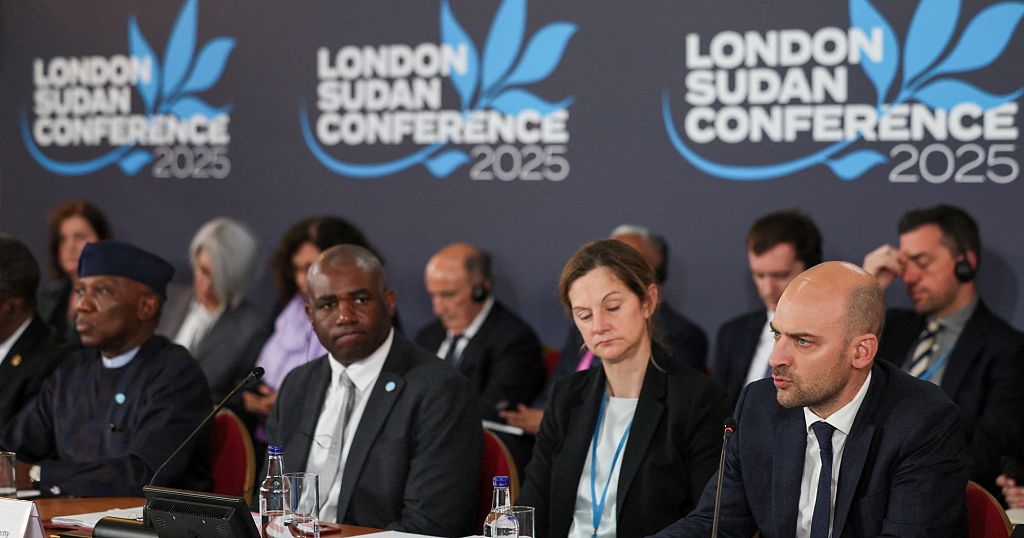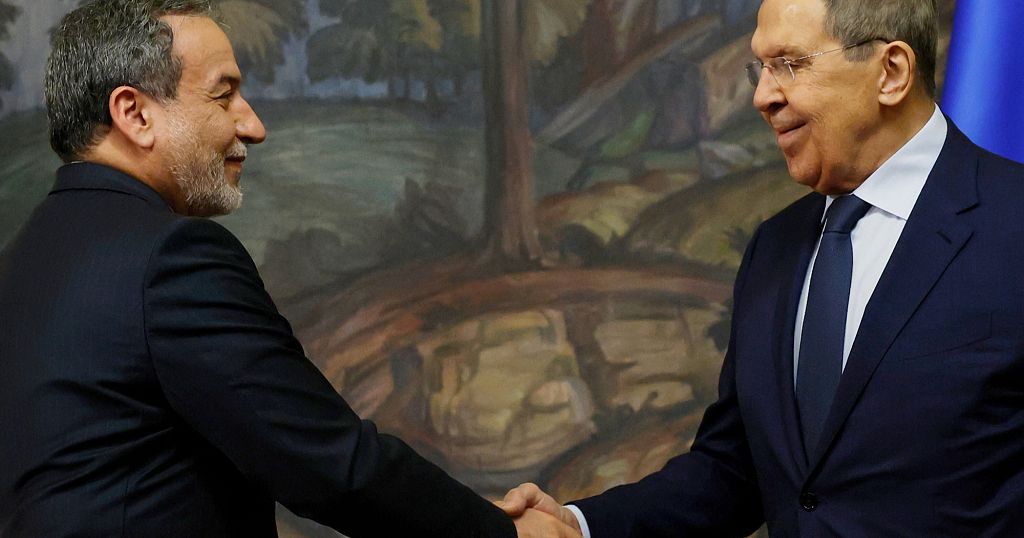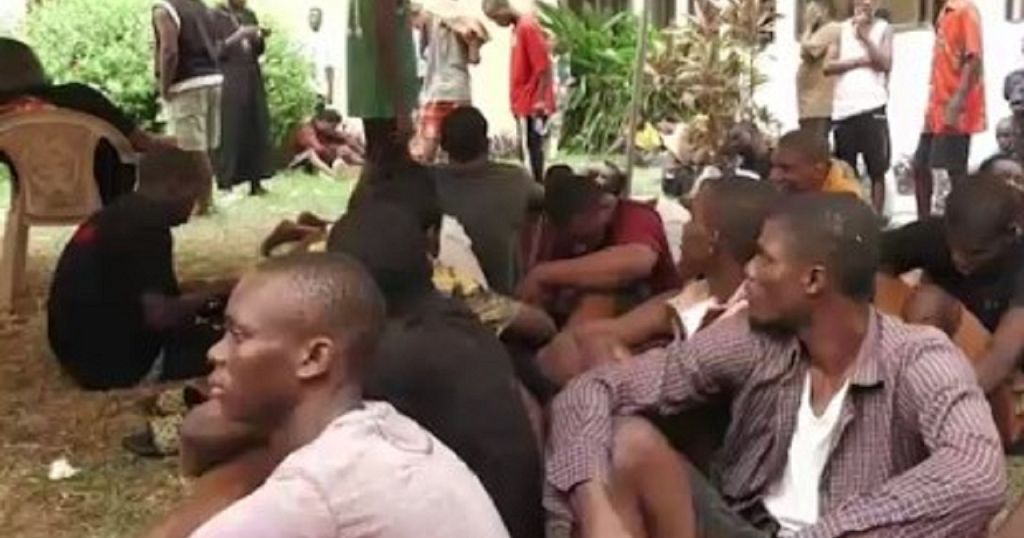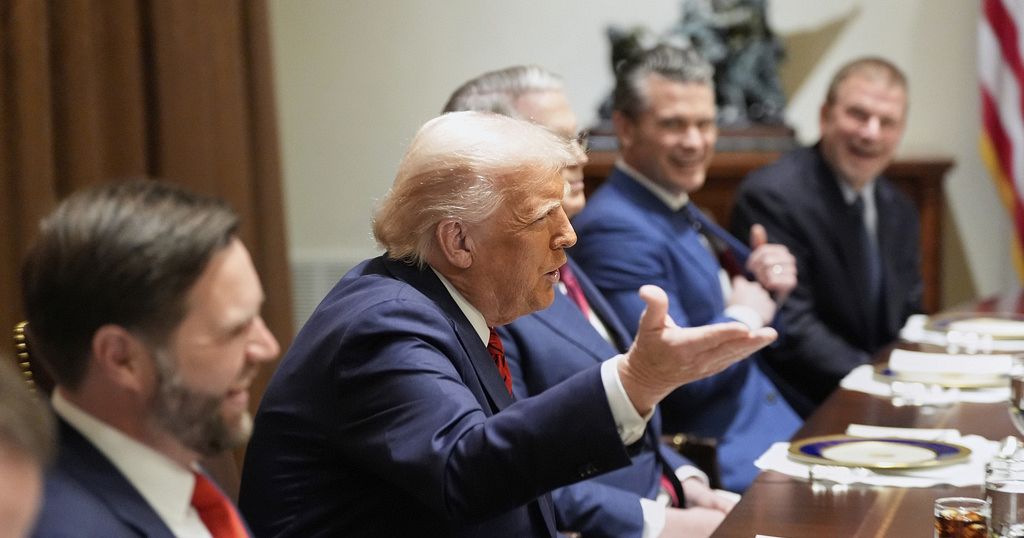Africa
Two years of war in Sudan: international conference aims to bring relief to suffering population

Diplomats and aid officials from around the world met Tuesday in London to try to ease the suffering from the 2-year-old war in Sudan, a conflict that has killed tens of thousands of people, displaced 14 million and pushed large parts of the country into famine.
The African Union, which co-hosted the one-day conference with Britain, France, Germany and the European Union, called for an “immediate cessation of hostilities.”
But UK Foreign Secretary David Lammy acknowledged that achieving peace would take time, renewed international effort and “patient diplomacy.”
The main aim of the conference was not to negotiate peace, but to relieve what the United Nations calls the world’s worst humanitarian crisis.
Attendees included officials from Western nations, international institutions and neighboring countries – but no one from Sudan. Neither the Sudanese military nor the rival paramilitary it is fighting has been invited.
Lammy told delegates that “many have given up on Sudan,” concluding that continued conflict is inevitable. He said a “lack of political will” is the biggest obstacle to peace.
“We have got to persuade the warring parties to protect civilians, to let aid in and across the country and to put peace first,” Lammy said.
Two years of hunger, fighting and destruction
Sudan plunged into war on April 15, 2023, after simmering tensions between the Sudanese military and a paramilitary organization known as the Rapid Support Forces. Fighting broke out in the capital, Khartoum, and spread across the country, killing at least 20,000 people – though the number is likely far higher.
Last month the Sudanese military regained control over Khartoum, a major symbolic victory in the war. But the RSF still controls most of the western region of Darfur and some other areas.
More than 300 civilians were killed in a burst of intense fighting in Darfur on Friday and Saturday, according to the U.N.
The war has driven parts of the country into famine and pushed more than 14 million people from their homes, with more than 3 million fleeing the country, to neighboring countries including Chad and Egypt. Both sides in the war have been accused of committing war crimes.
The World Food Program says nearly 25 million people — half of Sudan’s population — face extreme hunger.
Aid agency Oxfam said the humanitarian catastrophe risks becoming a regional crisis, with fighting spilling into neighboring countries. It said that in South Sudan, itself wracked by recent war, “the arrival of people fleeing Sudan’s conflict has put more pressure on already scarce resources, which is deepening local tensions and threatening the fragile peace.”
Africa
Iran seeks Russia’s support for its nuclear talks with US

Iran on Friday sought support from Russia over a possible deal with Washington over Tehran’s rapidly advancing nuclear program, ahead of a second round of talks this weekend in Rome.
Iran’s Foreign Minister Abbas Araghchi said he briefed his Russian counterpart, Sergey Lavrov, on the first round of talks in Oman last week and praised Russia’s role in Iran’s 2015 nuclear deal with world powers that led to lifting of sanctions in return for Tehran’s cap on its nuclear activities.
“We are hopeful, and we expect Russia to continue its supportive role in any new agreement,” Araghchi said in a joint news conference with Lavrov in Moscow.
The 2015 nuclear deal collapsed with Trump’s unilateral withdrawal while Iran abandoned all limits on its nuclear program, and enriches uranium to up to 60% purity — near weapons-grade levels of 90%.
Lavrov said Russia was ready to mediate and assist in the nuclear talks.
“We are ready to help, mediate and play any role that, from Iran’s point of view, will be useful and that will be acceptable to the United States,” Lavrov said. “We proceed from the fact that the only option for an agreement, as the (Iranian) minister just said, is an agreement exclusively on nuclear issues.”
Lavrov said Araghchi met with Russian President Vladimir Putin on Thursday in talks that “emphasized the unprecedented dynamics of (the) political dialogue” between Moscow and Tehran. He did not give details, beyond saying Putin was “very pleased” with the talks.
Araghchi said he gave Putin a message from Supreme Leader Ayatollah Ali Khamenei, who has a final say on all state matters in Iran. He did not elaborate.
In Paris, U.S. Secretary of State Marco Rubio expressed hope that talks with Iran are ″fruitful, and that they’re that they can lead to something. We would all prefer a peaceful resolution and a lasting one.″
Rubio met with British, French and German officials in Paris and pressed them to maintain sanctions against Iran instead of allowing them to run out.
″We should all anticipate, based on the public comments yesterday, that they’re about to get a report from the IAEA that says not just is Iran out of compliance, but Iran is dangerously close to a weapon, closer than they’ve ever been,” Rubio said.
He added: “And then they (the Europeans) are going to have to make a decision about whether they want to reimpose these sanctions. And if Iran is out of compliance, they have to reimpose the sanctions.″
Africa
219 rescued from human trafficking and cybercrime ring in Ghana

In a sweeping operation led by the Economic and Organised Crime Office (EOCO), 219 people—primarily foreign nationals—have been rescued from a suspected human trafficking and cybercrime ring operating in Oyarifa, a suburb of Accra.
The victims, mostly young individuals from across West Africa, were lured into Ghana with false promises of well-paying jobs and a better life. Instead, they were held against their will under harsh and exploitative conditions.
At a press briefing, EOCO’s Acting Executive Director, Abdul Bashiru, revealed that many of the victims had been confined for extended periods, with some enduring over a year in captivity. “A Nigerian victim disclosed that he was fed only once a day and had no freedom to leave the premises,” Bashiru said.
Authorities uncovered a trove of evidence at the scene, including laptops, internet routers, and other tools believed to have been used in online fraud schemes. Victims were housed in crowded, unsanitary conditions, forced to work long hours under surveillance.
EOCO, in partnership with the Criminal Investigations Department (CID), the Nigerian High Commission, and international stakeholders, has begun a detailed screening process to separate victims from suspects, and to identify minors among those rescued.
During the ongoing operation at Kunzak Estates in Oyarifa, journalists captured visuals of suspects being lined up, screened, and resting on EOCO’s premises while investigations continued. Officials say they expect the screening process to be completed within 24 hours.
Abdul Bashiru emphasized EOCO’s commitment to dismantling the entire trafficking network: “We’ve mapped out strategies for stronger collaboration between EOCO and the CID to intensify efforts against transnational organized crime.”
Repatriation plans for many of the victims—particularly Nigerian nationals—are already in motion. EOCO also confirmed that similar operations are being rolled out in other parts of the country, targeting what it calls a “well-coordinated trafficking network.”
This latest operation highlights Ghana’s growing role as a transit and destination point in the fight against cross-border human trafficking and cybercrime.
Africa
Trump administration plans to shut down nearly 30 U.S. embassies — over half in Africa

The Trump administration is considering a significant reduction in the United States’ diplomatic presence worldwide, with a proposal to close nearly 30 embassies and consulates, over half of which are located in Africa.
This initiative is part of a broader plan to cut the State Department’s budget by nearly 50%, aiming to reduce foreign aid by approximately 75%.
According to an internal State Department document, the proposed closures include embassies in Lesotho, Eritrea, the Central African Republic, the Republic of Congo, The Gambia, and South Sudan. Additionally, consulates in Durban, South Africa, and Douala, Cameroon, are slated for closure, with their responsibilities potentially being transferred to neighboring countries.
Critics of the proposal express concern that reducing the U.S. diplomatic footprint in Africa could diminish American influence on the continent, especially as other global powers, such as China, continue to expand their presence. They argue that such closures could hinder diplomatic relations, economic partnerships, and the promotion of democratic values.
The administration’s plan also includes the potential closure of embassies in European countries like Malta and Luxembourg, as well as consulates in various cities across Europe and Asia . These proposed changes are part of a larger effort to streamline government operations and reduce federal spending.
-

 Conflict Zones2 days ago
Conflict Zones2 days agoHaiti in ‘free fall’ as violence escalates, rights group warns | Armed Groups News
-

 Lifestyle2 days ago
Lifestyle2 days agoBelievers say microdosing psychedelics helps them. Scientists are trying to measure the claims
-

 Sports2 days ago
Sports2 days agoJu Wenjun: Chinese grandmaster makes history by winning fifth Women’s World Chess Championship
-

 Lifestyle2 days ago
Lifestyle2 days agoPicking a team from bars to beam and hoping for 10s: Fantasy leagues in gymnastics are a thing
-

 Sports2 days ago
Sports2 days agoArsenal reaches first Champions League semifinal in 16 years, with Inter Milan also advancing
-

 Middle East2 days ago
Middle East2 days agoPalestinian photographer Samar Abu Elouf wins world’s top photo prize | Gaza News
-

 Sports2 days ago
Sports2 days agoBarcelona player Mapi León banned for two matches after appearing to touch the groin of an opponent
-

 Lifestyle2 days ago
Lifestyle2 days agoMental health leaves are increasingly common for US workers




